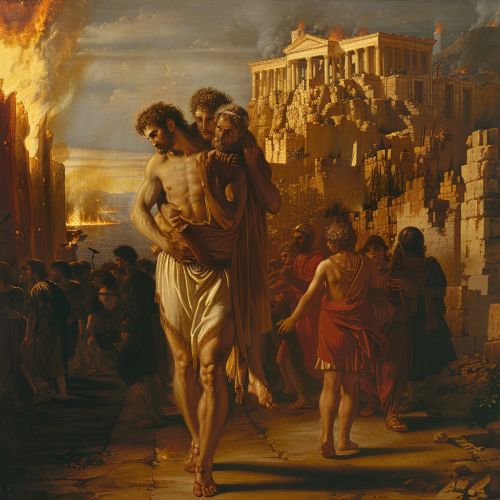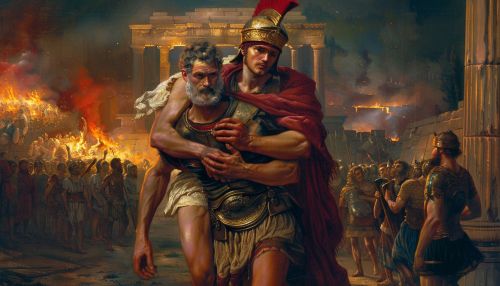Aeneid
Introduction
The Aeneid is a Latin epic poem, written by Virgil between 29 and 19 BC, that tells the legendary story of Aeneas, a Trojan who travelled to Italy, where he became the ancestor of the Romans. It comprises 9,896 lines in dactylic hexameter. The first six of the poem's twelve books tell the story of Aeneas's wanderings from Troy to Italy, and the poem's second half tells of the Trojans' ultimately victorious war upon the Latins, under whose name Aeneas and his Trojan followers are destined to be subsumed.
Historical Context
The Aeneid is widely regarded as Virgil's masterpiece and one of the greatest works of Latin literature. The Aeneid can be divided into two halves based on the disparate subject matter of Books 1–6 (Aeneas's journey to Italy) and Books 7–12 (the war in Italy). These two halves are commonly regarded as reflecting Virgil's ambition to rival Homer by treating both the Odyssey's wandering theme and the Iliad's warfare themes.
Structure and Themes
The Aeneid is structured around the dual themes of Rome's divine destiny and the cost of empire building. Aeneas's personal self-sacrifice and devotion to his duty and the gods leads to the founding of Rome, a city destined to rule the world. However, this destiny comes at a high cost, as the poem's characters are forced to endure hardship, war, and loss on an epic scale.


Characters
The Aeneid is populated by a range of characters, both mortal and divine. Aeneas, the poem's protagonist, is a figure of epic proportions and the son of the goddess Aphrodite. Other key characters include Dido, the queen of Carthage, who becomes tragically infatuated with Aeneas; Turnus, the leader of the Latins who opposes Aeneas; and a host of gods and goddesses who take an active interest in Aeneas's destiny.
Influence and Legacy
The Aeneid has been highly influential in Western literature, and its themes and characters have been revisited and reinterpreted by numerous authors. The poem's influence extends beyond literature and has also had a profound impact on the fields of art, music, and politics.
